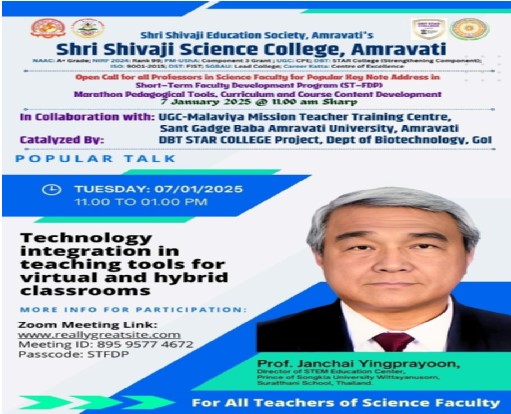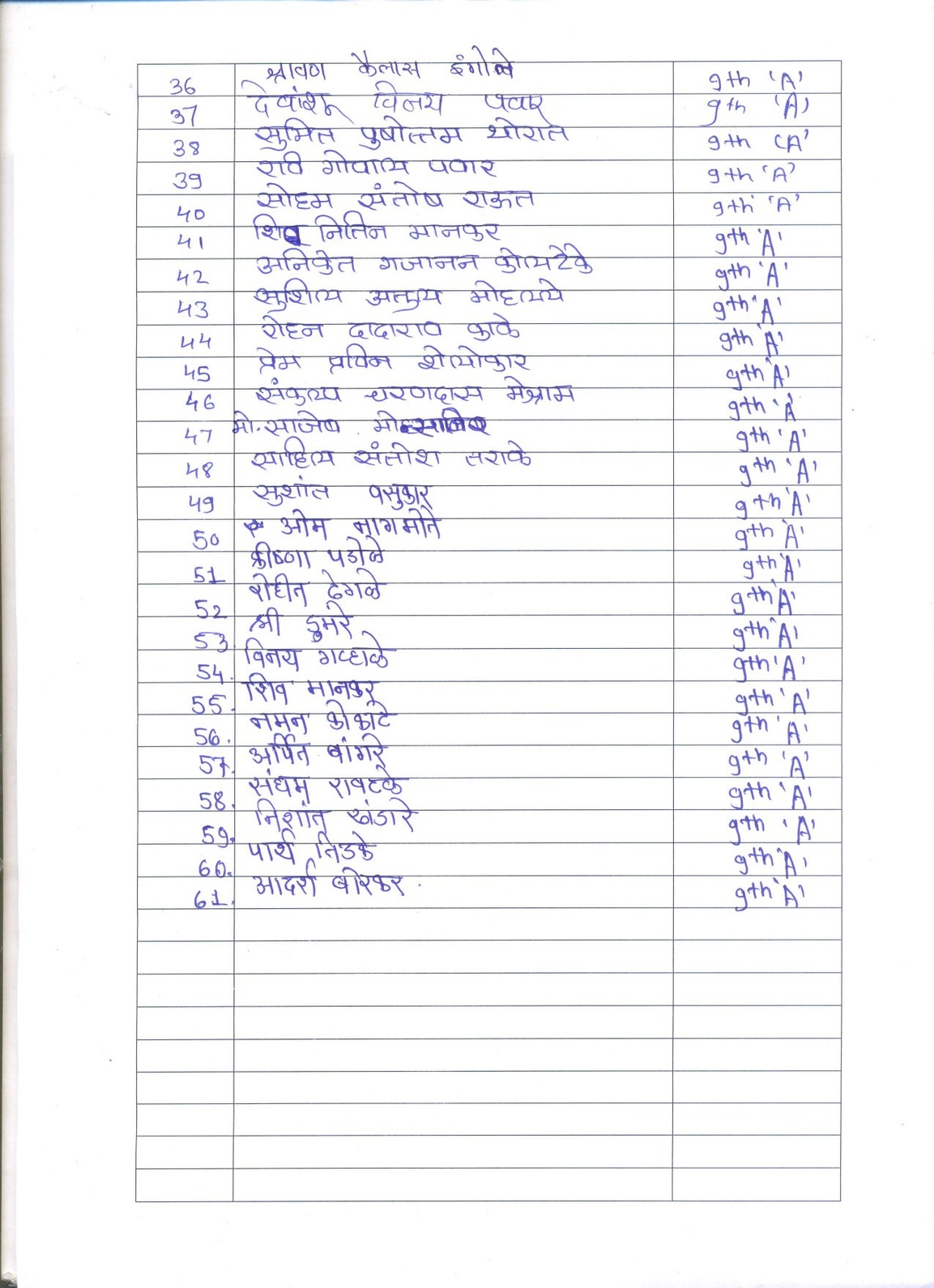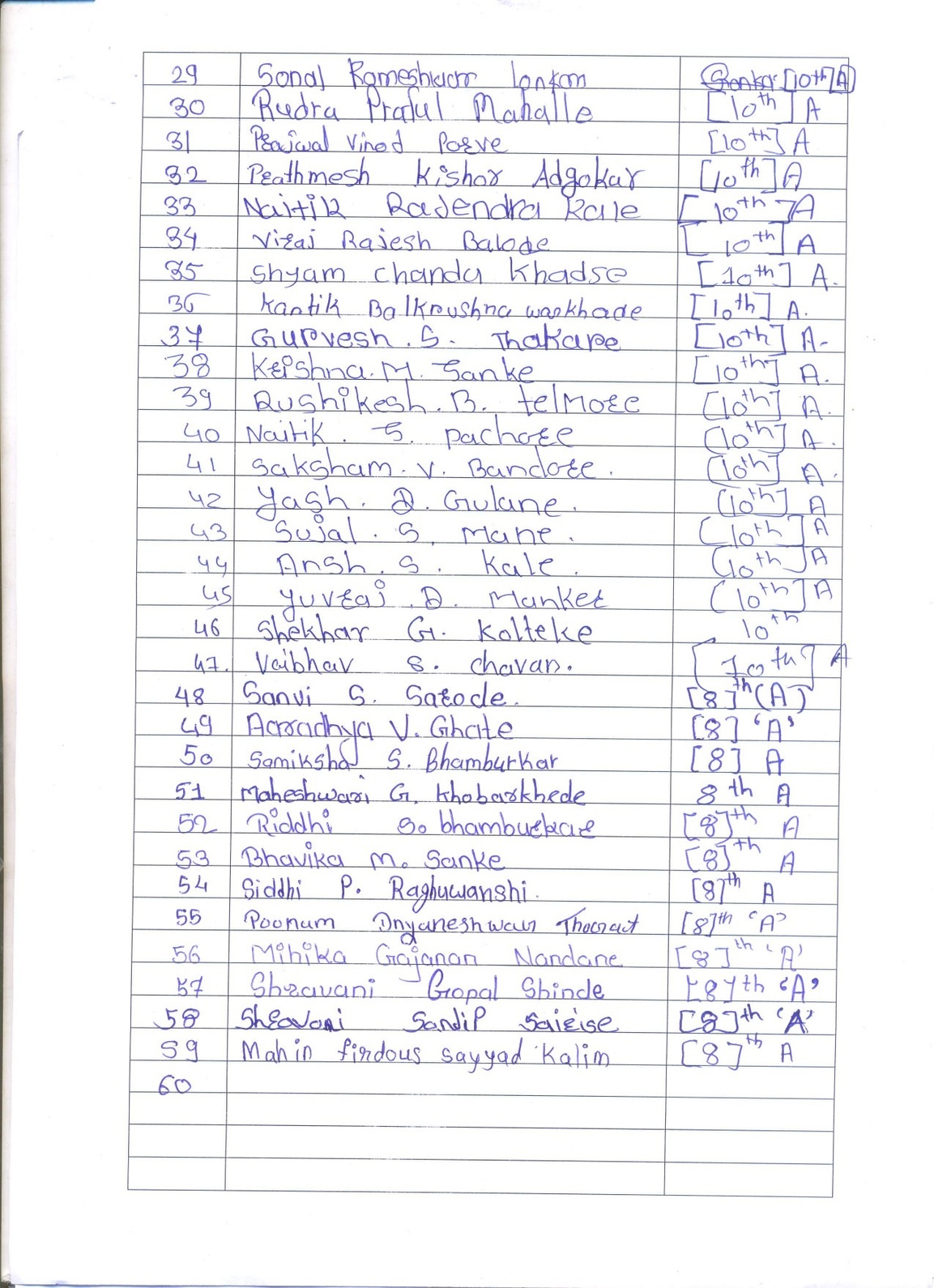SHRI SHIVAJI SCIENCE COLLEGE, AMRAVATI
DBT STAR COLLEGE PROJECT ACTIVITY
ACTIVITY REPORT

awareness program (Hand hygiene awareness and Menstrual Health and Hygiene campaign)
Activity Dates: 12.09.2025
Type of Activity: Outreach Activity
Organizing Department: Department of Microbiology
Program Coordinators: Prof. Suwarna S. Mankar
Head of the Department: Dr. R. C. Maggirwar
External Collaborator (if any): No
Objectives:
- To raise awareness among school students about the importance of regular and proper handwashing.
- To educate young girls and boys on menstrual health and hygiene, breaking myths and taboos surrounding the subject
- To promote scientific understanding of basic hygiene practices through engaging and interactive methods
- To involve students in creative learning through activities such as street plays and dance
- To distribute informative pamphlets and provide a platform for open discussion
No of Beneficieries: 300
Classes Involved: B.Sc.-II Year Microbiology students
Venue of the Activity: Chogalal Rathi Gurukul Vidyalaya, Bhatkuli
Activity Report:
The Department of Microbiology and Biotechnology undertook a significant outreach initiative by organizing a comprehensive Hand Washing Awareness and Menstrual Health & Hygiene Campaign at Chogalal Rathi Gurukul Vidyalaya, Bhatkuli. This program was designed to educate and empower school students with essential knowledge and practical skills related to personal hygiene and health.
Along with the host school, students from Zilha Parishad School, Bhatkuli, and Zilha Parishad School, Lontek were also invited and actively participated in the event. The campaign aimed to address two major health topics: proper hand hygiene and menstrual health management—both crucial for the well-being of adolescents, particularly in rural and semi-urban settings.
---
Objectives of the Campaign
1. To raise awareness among school students about the importance of regular and proper handwashing.
2. To educate young girls and boys on menstrual health and hygiene, breaking myths and taboos surrounding the subject.
3. To promote scientific understanding of basic hygiene practices through engaging and interactive methods.
4. To involve students in creative learning through activities such as street plays and dances.
5. To distribute informative pamphlets and provide a platform for open discussion.
---
Activities Conducted
The campaign was structured around engaging, educational, and participative activities that catered to the age group and understanding of the students present.
1. Street Play on Handwashing
The highlight of the campaign was a street play performed by the students of the Department of Microbiology. This play creatively depicted the importance of handwashing in preventing communicable diseases. It emphasized the role of hygiene in daily life, especially in school and community settings.
The play demonstrated:
The correct steps of handwashing as recommended by health authorities (like WHO).
Scenarios showing the consequences of poor hand hygiene.
The role of handwashing in controlling the spread of germs and maintaining personal and community health.
The students used props, simple language, and relatable situations to convey the message effectively. The audience, comprising school children and teachers, watched with keen interest and were able to understand the significance of the message being portrayed.
2. Dance Performance on Handwashing Steps
Following the street play, a dance performance based on the steps of handwashing was presented by the Microbiology students. The steps were creatively incorporated into a rhythmic and engaging routine, making it easier for young students to learn and remember.
What made this activity particularly special was the enthusiastic participation of the school students. Encouraged by the performers, many children joined in and learned the handwashing steps through dance. This interactive approach ensured that the learning was not only fun but also retained more effectively.
Teachers appreciated the creativity and effort put into making such an essential health practice appealing to the students.
3. Menstrual Health and Hygiene Session
One of the key components of the campaign was the Menstrual Health and Hygiene Awareness session, aimed especially at adolescent girls but inclusive of all students to foster mutual understanding and empathy.
This session involved:
An interactive discussion led by faculty and senior students from the Microbiology department.
Open Q&A where students could ask questions without hesitation.
Dispelling common myths and taboos surrounding menstruation.
Emphasizing the biological and scientific aspects of the menstrual cycle.
Guidance on maintaining hygiene during menstruation.
The approach was sensitive and respectful, ensuring that the students, particularly girls, felt comfortable and supported during the session. The discussion highlighted the importance of using clean and safe menstrual products, proper disposal methods, and the need for breaking societal silence around menstruation.
4. Distribution of Scientific Information Pamphlets
To reinforce the learning from the sessions, scientifically accurate and age-appropriate pamphlets were distributed to all students. These pamphlets covered:
Step-by-step guide to proper handwashing.
Information on common diseases prevented by hand hygiene.
Basic facts about menstruation and menstrual hygiene.
Tips for maintaining cleanliness and health during periods.
The pamphlets were prepared in simple language and included diagrams to aid understanding. They served as takeaway learning material for the students and a source of reference for their families as well.
Student Engagement and Response
The response from the students was overwhelmingly positive. They participated with enthusiasm, particularly in the dance and discussion sessions. Many students expressed their curiosity and asked thoughtful questions during the menstrual health awareness interaction, which indicated the need for more such open forums.
The creative methods of communication, like the street play and dance, helped break the monotony of traditional instruction and kept the audience actively engaged throughout the event.
Feedback and Appreciation
The campaign received warm appreciation from all quarters. Teachers and staff from all three schools praised the efforts of the Department of Microbiology and Biotechnology for organizing such an impactful and relevant awareness drive. They emphasized the importance of regularly conducting such educational activities, especially in rural areas where access to health education may be limited.
Several teachers remarked that the students seemed more confident and better informed after the sessions. The use of student-led performances was especially appreciated for making health education relatable and peer-driven.
The Hand Washing Awareness and Menstrual Health & Hygiene Campaign organized by the Department of Microbiology and Biotechnology was a commendable initiative that successfully combined education, entertainment, and community service. Through street plays, interactive discussions, and creative dance performances, the campaign managed to reach young minds and instill essential values of hygiene and health.
By targeting two critical aspects of adolescent health—hand hygiene and menstrual care—the campaign made a significant contribution toward building a healthier and more informed student community.
Such outreach programs not only help in spreading awareness but also contribute to shaping responsible citizens who understand the importance of personal and public health. The department plans to continue these efforts in collaboration with more schools in the region in the future.
The campaign received warm appreciation from all quarters. Teachers and staff from all three schools praised the efforts of the Department of Microbiology and Biotechnology for organizing such an impactful and relevant awareness drive. Several teachers remarked that the students seemed more confident and better informed after the sessions. The use of student-led performances was especially appreciated for making health education relatable and peer-driven.
Outcomes:
- Improved personal hygiene practices
- Reduced disease transmission
- Increased awareness and knowledge
- Improved menstrual cycle practices
- Empowerment and confidence
Photos:
Attendance Sheet:
 |
 |